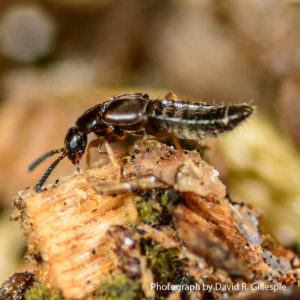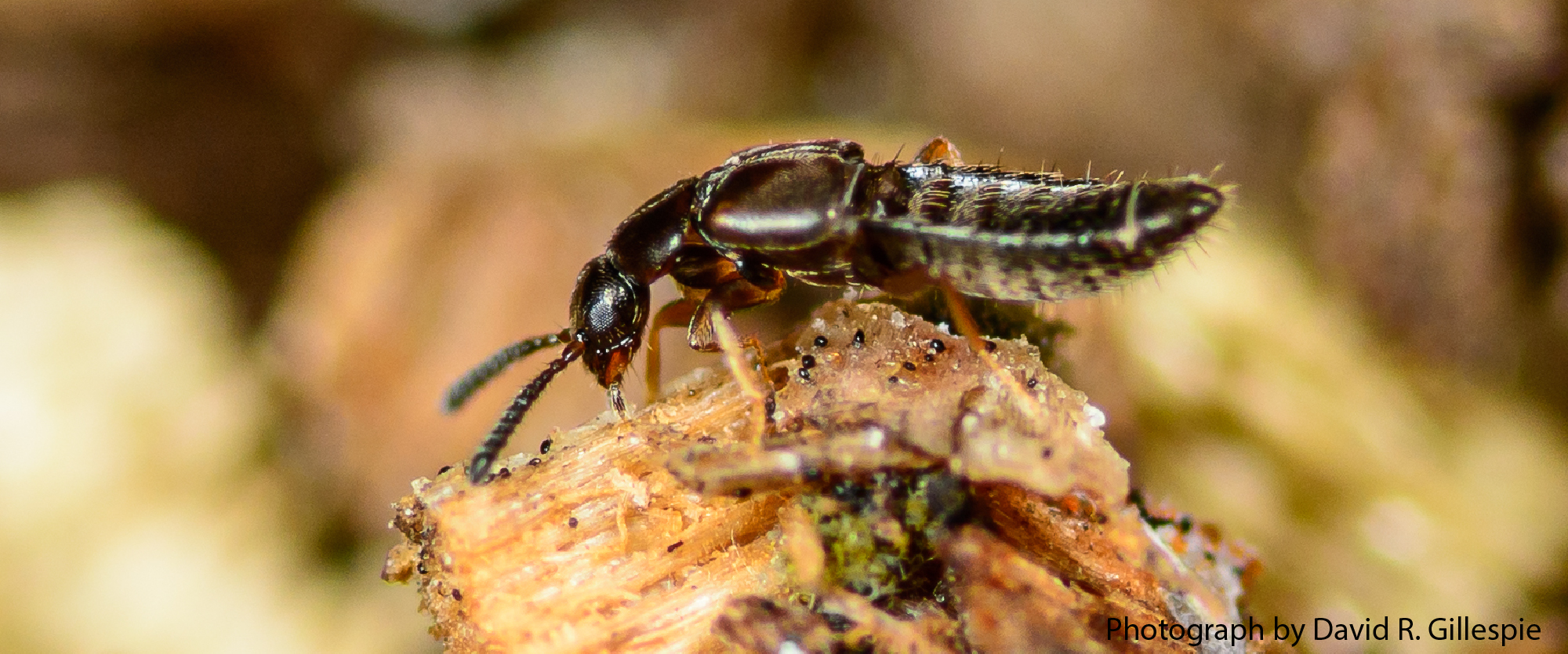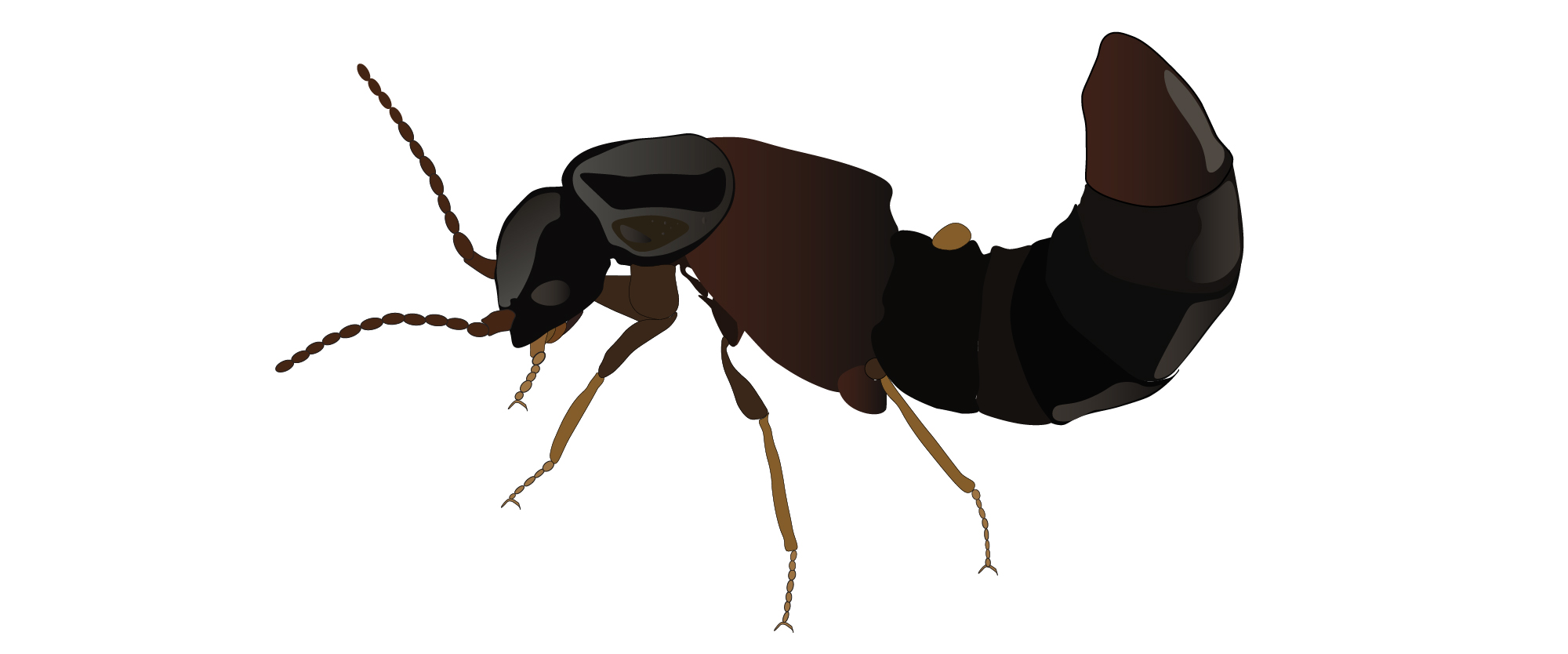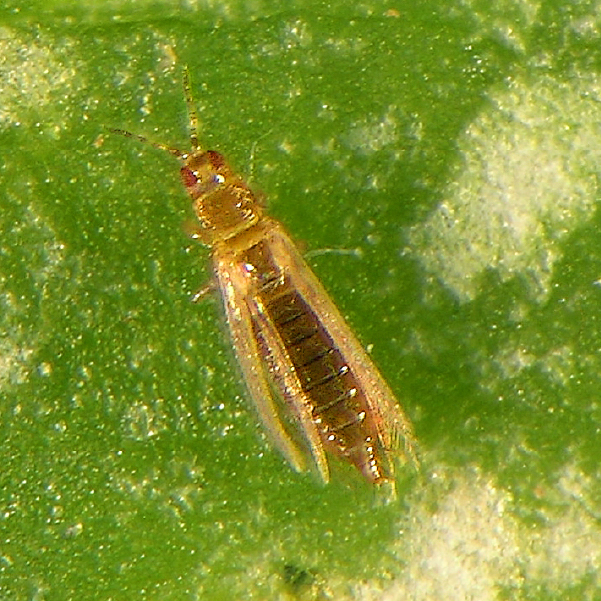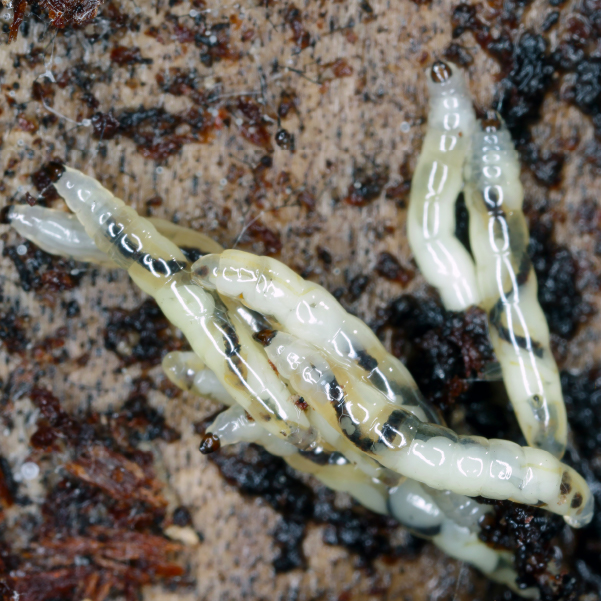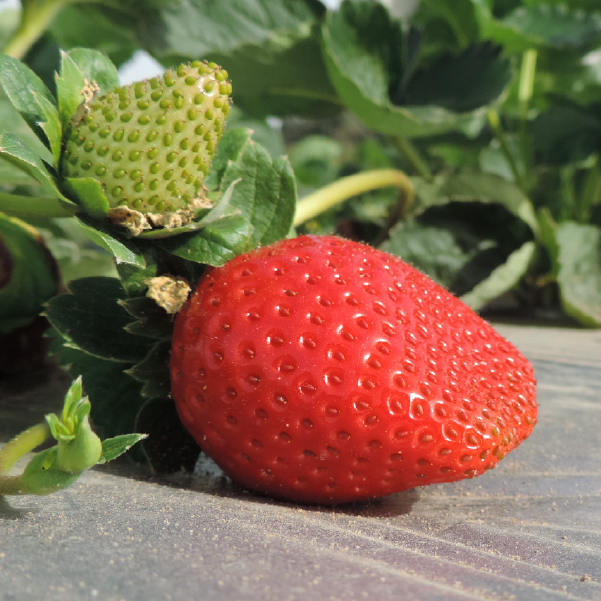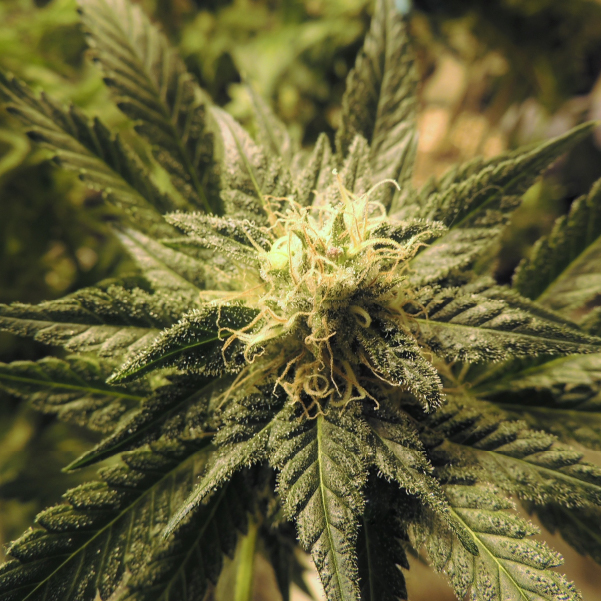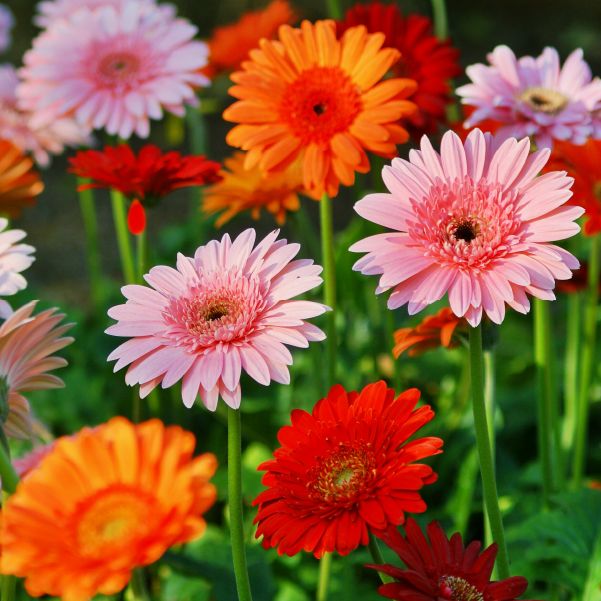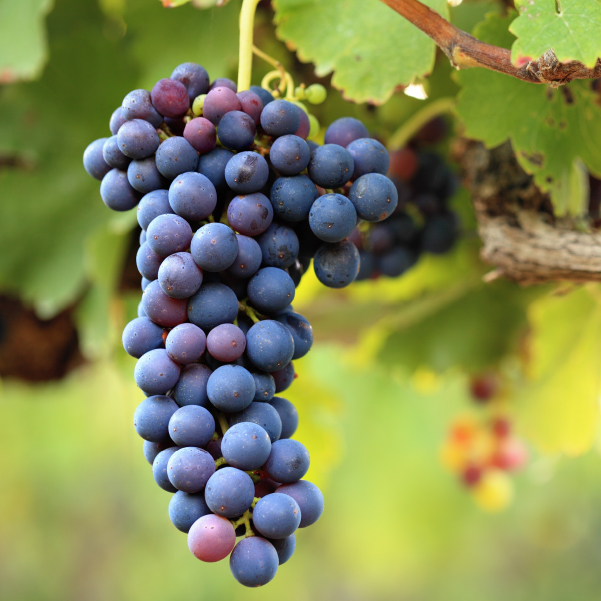BioAtheta (Dalotia coriaria) is a fast-moving, soil dwelling rove beetle. A generalist predator, it feeds on a wide range of small insects and mites but is primarily an egg predator. BioAtheta is used in the control of fungus gnats, thrips pupae, shore flies, moth fly larvae, root mealybugs, springtails and other small arthropods.
While they are beetles, they do not quite look like beetles. They are light to dark brown in color, with adults being 3-4 mm long. BioAtheta curve their abdomen upwards (like scorpions) and can run or fly when disturbed . Since they can actively fly, they rapidly colonize the release area.
Each adult rove beetle consumes 10-20 prey per day. In greenhouse conditions, adults are non-diapausing and can be used year round especially in propagation conditions.
Consult your local BioBee representative for additional details.
Target Pests
Product
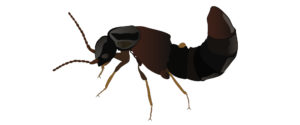
- Bottles containing 50/100 adult rove beetles
- Tube containing 500/1K rove beetles
- One gallon bucket containing 3K rove beetles
- One gallon bucket containing 3K rove beetles at different developmental stages
Application
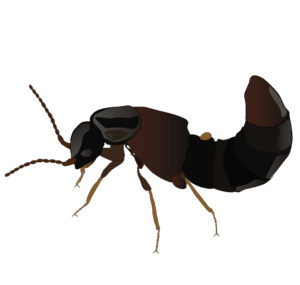
- BioAtheta is shipped in insulated, chilled boxes. Packaging must be kept intact until placed in the field.
- Keep in a cool location until release.
- Do not water soil or growing medium 10 minutes before and a few hours after release
- Gently rotate the bottle before release.
- Sprinkle the contents evenly on slightly damp growing mediums
- Do not expose the bottles to direct sunlight.
The introduction rate of BioAtheta should be determined according to the crop and rate of infestation.
Before combining BioAtheta with any chemical pesticide in the crop, please consult your BioBee technical field representative.
Crops
Storage
-

Storage temperature
-

Do not store in sunlight
-

Apply early morning or late afternoon
-
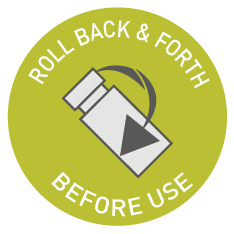
Roll back & forth before use
-

Store horizontally
Disclaimer
BioBee Sde Eliyahu Ltd. produces and markets biological products. Production is carried out using innovative techniques under controlled quality assurance standards such as ISO 9001:2015, as well as IOBC’s international standards for mass-production of insects. All products are tested to meet specification requirements before leaving the factory.
The success of biological pest control is affected by the crop’s initial pest population (upon application of the product), weather conditions and chemical residue present in the crop, among other possible aggravating factors.
Under no circumstance shall BioBee be liable for the outcome of the implementation in the field, as it has no control over local conditions, the application method, or the possible improper treatment/storage of the product.
